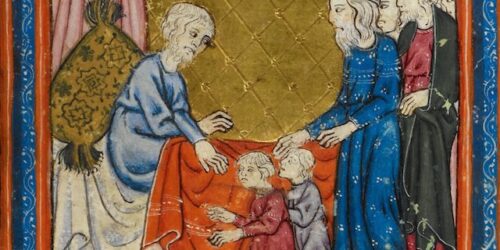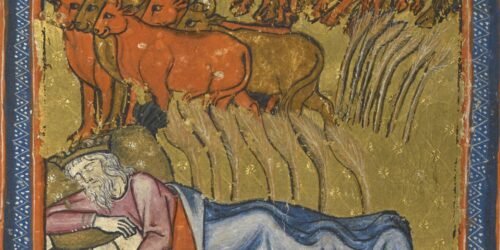When we last left this narrative a donated Sefer Torah was found to be seriously “pasul” (unusable) and it had mysteriously disappeared from the congregation. This was the Torah donation facilitated by my emeritus…
The Sefer Torah was gone. What arrived a week later was a letter from a prominent Orthodox rabbi in Monsey which stated among other things:
I have inspected three columns of the Sefer Torah
and found them Kosher in every way.
When confronted by the letter and accused of libeling the rabbi emeritus I started laughing, and asked to speak to the issue at the upcoming board meeting. I then called the Orthodox rabbi who had written the letter.
At the board meeting I explained that in the rabbinic world what is not said is sometimes more important than what is said. The rabbi did not say the Torah was kosher, only that the three columns he inspected were kosher. The rabbi did not say that the scroll he inspected was the same scroll donated to the congregation. In fact the rabbi did not say anything at all.
I then related my conversation with the rabbi where he said that he was in the scribe’s store looking for tefillin and was asked to check out three columns of “a” sefer Torah and to certify the columns as being kosher. He made it clear that he was not certifying the Torah as kosher. Nor did he assert this scroll donated was the scroll he inspected.
When I asked him why, if he knew all this and suspected duplicity did he write the letter? His response was instructive: he expected whichever rabbi was put to the question (in this case me) would be intelligent enough to see through the ruse. And, if I was not that discerning – I deserved what I got.
The sefer Torah was returned the next week – but it was not the same Torah. The affair was over – and everyone (including myself) was content to let things be.
In retrospect with the benefit of decades of hindsight there were other ways to handle the situation: for I won the battle but lost the war – I was not long for the congregation; within a year I would resign and subsequently be fired from Shaarey Tfiloh.
Upon seeing the condition of the scroll would it not have been better to approach the emeritus privately with the scribe’s letter? Would it not have been more ethical to give him the opportunity to make things right.
True there was an element of payback: I had been aggressively excluded from the process and the emeritus had pointedly attempted to embarrass the congregation by excluding many of them from the celebration.Was I so enraged by the “chutzpah” of the donation – that the scroll was in such poor shape – he foisted on all of us.
It never entered anyone’s mind that perhaps he himself was the victim of a trick by his scribe. Should I have given the benefit of the doubt before blowing up the situation?
From before my arrival at the congregation the emeritus had lobbied,schemed and spoken against me – I had no expectation he would cooperate with me now – and every expectation he would act against me – but did that justify my public acts without at least the attempt to alleviate the situation in private?
I know my actions were not wrong – but were they right?







